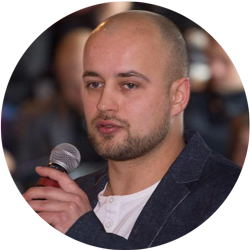Authenticity
This tool will require you to do some reading and will offer a few (20) tools that could help you to develop an openness to your own authenticity

Why did I choose this tool? Daring to share emotions and insights, honestly takes a lot of effort because you need to make peace with yourself, accept yourself for who you really are and accept the things that you’re thinking about. If we are willing to support learners in identifying their real learning needs, we need to encourage the realness in them. It is impossible to do so without being truly ourselves. This is why I suggest you to read about the gift of authenticity (youth work connected) and then move to trying out some of the 20 authenticity strategies suggested by psychologists.
How does this apply to being a trainer? As trainers we are in the position to lead by example. Personal development is one of the main goals of youth work (the field we are working in most of the times) and it is important to work on ourselves and our consciousness about who we really are. Only then we can preach to the participants about how important it is. Knowing the true self can lead to actually understand our emotions. Being open with yourself might result in openness with the learners which leads to an even bigger achievement – educational relationship. As it is claimed by Palmer in The Courage to Teach (1998): “good teaching cannot be reduced to technique; good teaching comes from the identity and integrity of the teacher”(1998: 10).
Main content:
Start with reading the article by Heather Smith “Seeking out the gift of authenticity” http://infed.org/mobi/seeking-out-the-gift-of-authenticity
While you are reading, write down the ideas that you find relevant to your work as a trainer.
Now it is time to move and do some practical exercises and work on yourself to develop authenticity: https://www.psychologytoday.com/us/blog/click-here-happiness/201904/develop-authenticity-20-ways-be-more-authentic-person
Try out at least 3 of the proposed techniques, proceed to the reflection questions
Reflection questions:
- Which parts of the first text were speaking to you the most? Why do you think that was?
- Which ideas written down in the first text on youth work you did not find transferable to training? What made them unsuitable?
- What were the new aspects of your personality that you disclosed with the authenticity techniques?
- Which of the authenticity techniques you could try with participants?
Exercises:
How to apply it in everyday life:
Keep trying out the techniques, invent new ones and practice them with colleagues and learners.






